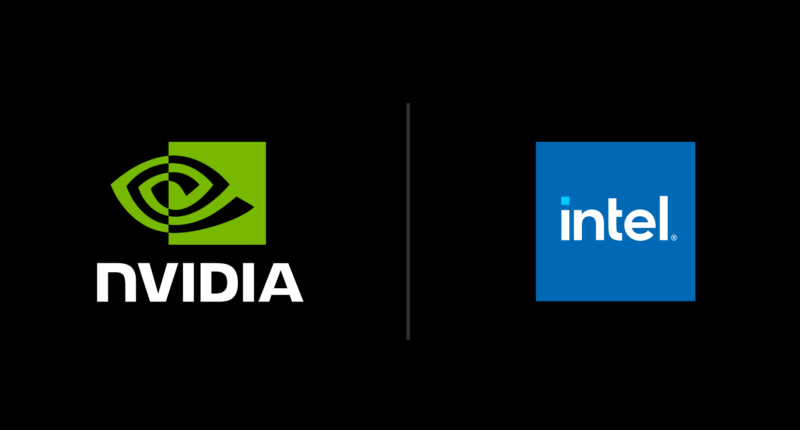Nvidia has announced a $5 billion investment in Intel shares alongside a strategic collaboration to develop next-generation data centre and personal computing products powered by artificial intelligence.
The deal makes Nvidia one of Intel’s largest shareholders with approximately 4% ownership, providing crucial support for the struggling chipmaker following recent turnaround efforts, reports Reuters.
Under the partnership agreement, Intel will manufacture custom x86 processors for Nvidia’s AI infrastructure platforms while developing system-on-chips that integrate Nvidia RTX graphics capabilities for personal computers. The collaboration utilises Nvidia NVLink technology to connect both companies’ architectures.
Nvidia will purchase Intel shares at $23.28 each, slightly below Wednesday’s closing price of $24.90 but above the $20.47 rate paid by the US government in a separate deal. The investment requires standard regulatory approvals before completion.
“AI is powering a new industrial revolution and reinventing every layer of the computing stack — from silicon to systems to software,” said Jensen Huang, Nvidia founder and chief executive. “This historic collaboration tightly couples NVIDIA’s AI and accelerated computing stack with Intel’s CPUs and the vast x86 ecosystem.”
Intel appointed Lip-Bu Tan as chief executive in March following years of unsuccessful turnaround attempts. The company recently secured unusual arrangements including a 10% government stake worth $5.7 billion and a $2 billion Softbank investment.
The partnership notably excludes Intel’s contract manufacturing business, despite analyst expectations that securing major customers like Nvidia would prove essential for the foundry division’s survival.
“Intel’s x86 architecture has been foundational to modern computing for decades – and we are innovating across our portfolio to enable the workloads of the future,” said Tan. “Intel’s leading data center and client computing platforms, combined with our process technology, manufacturing and advanced packaging capabilities, will complement NVIDIA’s AI and accelerated computing leadership.”
The agreement aims to serve hyperscale, enterprise and consumer markets through multiple product generations, though financial terms beyond the equity investment remain undisclosed. Both companies described the arrangement as commercial rather than licensing-based.
Nvidia’s investment provides political benefits in the US market while the company navigates complex requirements from Washington and Beijing regarding chip sales to China.











